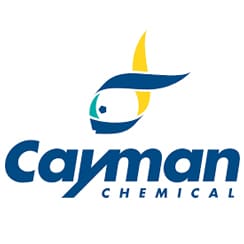
PPAR (human recombinant)
- Brand: Cayman Chemical
- Catalog No.: 10007451
- Quantity/Unit: 25 ug/Pack
- Availability: Out Of stock
For lab/research use only, unless otherwise specified
Peroxisome proliferator-activated receptors (PPARs) are members of the nuclEAr receptor family of ligand activated transcription factors that heterodimerize with retinoic acid like receptors, regulating gene expression and differentiation.1 The PPAR family of nuclEAr hormone receptors consists of three subtypes encoded by separate genes: PPAR, PPAR (also referred to as hNUC1, PPAR, or FAAR), and PPAR. PPAR is ubiquitously expressed but is particularly abundant in tissues such as liver, intestine, kidney, abdominal adipose, and skeletal muscle, all of which are involved in lipid metabolism.2 PPAR is a mediator of diverse physiological functions including lipid and cholesterol homeostasis, embryo implantation, and cancer development.3,4,5,6 Most recently, attention has been focused on the role of PPAR in obesity.7 Caymans PPAR protein is purified from a baculovirus overexpression system. The purity was determined using gel electrophoresis followed by coomassie staining.Technical InformationSynonymsFAARNUC1NuclEAr Hormone Receptor 1Peroxisome Proliferative Activated Receptor PPARPurity95% estimated by SDS-PAGESourcerecombinant protein isolated from baculovirus overexpression system in Sf21 cellsMW54 kDaFormulationA solution in 50 mM of sodium phosphate, pH 7.2, containing 20% glycerol, 100 mM sodium chloride, and 1 mM DTT





